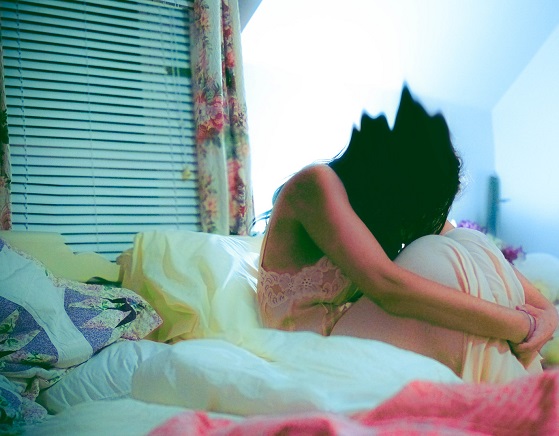Navigating Grief for My Grandmother With Endorphins.

{source}
I was in the middle of my workout when my grandmother passed away. If it was sudden, that would probably have been justified. But it wasn’t, not really.
She had been hospitalized, and her condition had been deteriorating. I had visited her 45 minutes prior to her death. Unconscious, but at peace. I returned home, and decided to channel my emotional pain into a physical realm — PopSugar Fitness — an ab workout.
Halfway through, my mum banged on the door. They were rushing to the hospital, it didn’t look good. Someone normal would have sat on a prayer mat. I figured I’d just finish my last set. Even as I proceeded to pray next, I knew she was gone. My mum called five minutes later, confirming the same. I cried then, of course, I still have some human left in me.
But my mind was rushing, listing down the logistics, there was no time to grieve, not yet. I had my chai and biscuit, probably inappropriate to eat the pizza I was meant to, for dinner. It’s funny how the human mind works, isn’t it? Was I avoiding eating pizza because who needed the extra carbs after a workout, or was it deemed an imperfect food for death?
That’s funny, coming from someone who chose to cycle it out when a few loved ones passed away in a plane crash.
The hours and days that followed were a blur. I was the only grandchild physically present, so the logistics and emotions had to be kept on track. The ways of the world are, indeed, inexplicable. People grieved for her, but also inquired about when the chai would be ready, or if the rice served for lunch could be brought to them. Exhaustion did not leave time for emotion, and we slipped into a new normal soon after.
When I decided to write, I did not think my first piece would be about my grandmother, and even if it was, it appeared far from an elegy. We called her “Mumma,” the woman did not want to be associated with the age which “dadi” (the Urdu word for paternal grandmother) implied. I would be lying if I said she was a grandmother synonymous with warmth.
My initial memories of her are clouded with anger, at her interference in our lives, or at her never sharing the car with us, fairly. I resented her questioning, something I am not proud of, in retrospect.
It was only in the last two years, the peak of her decline, and her becoming senile, that I began to feel an attachment. A part of me hates to admit that it might have been pity. Working from home meant I could take my evening tea with her, and on the days that I could fulfill this duty, I felt content.
It was only in her senility that I appreciated the strength she had displayed, having lived a lonely 15 years without her husband, shocking for the millennial me who is heartbroken after being left on seen by a potential nothing. She offered unconditional support for any boy I would ever bring home in the future, guaranteeing that she would take a stand if my parents refused.
There is no doubt that she lived a full, happy and healthy life. But when I imagine her absence on my wedding, I am overcome by grief. It really is strange how a 4 feet, 6 inch being can leave a lump in my throat so big, it hurts to swallow.
When I indulged in an intense skipping session, I would unconsciously be wary of disturbing Mumma, whose room was right below mine. Today, I miss not having to schedule my workouts according to Mumma’s nap times.
***
Noor Dada is an HR Professional and part-time MBA student by day, and an avid reader and writer by night. She is a 20-something female, born and brought up in Karachi, who tries to make sense of the world around her through the world of literature. While her career is steered towards a business degree, she hopes to pursue an MA in Literary Modernism from her dream school, Tufts.

